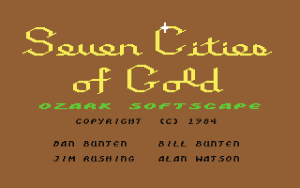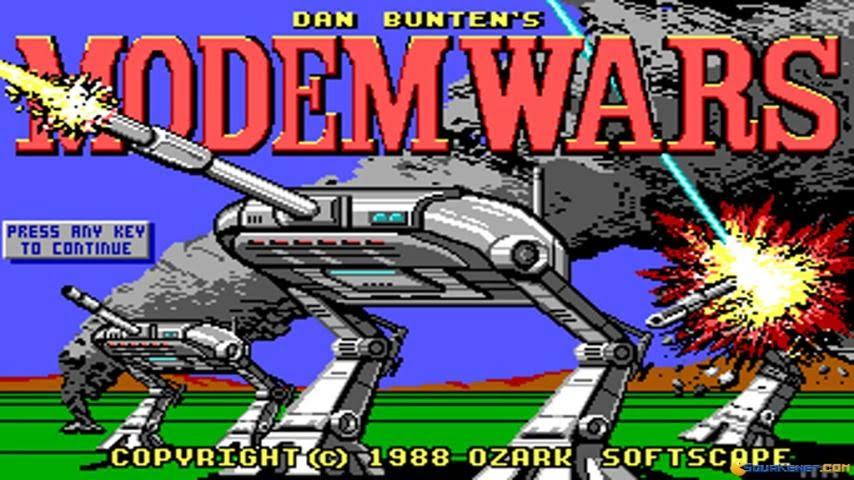Long before Xbox Live, Discord servers, or multiplayer mobile games, one visionary programmer in Arkansas was already building the social future of gaming. While her peers focused on creating better single-player experiences, Danielle Bunten Berry understood a fundamental truth about technology that wouldn't become obvious to the industry for decades: computers weren't just thinking machines, they were a tool for connection.

Born in St. Louis in 1949, Berry moved to Little Rock as a junior in high school. Growing up in a family of six children with limited financial resources, she took a job at a local pharmacy to help make ends meet and served as a part-time Scout master. Her fondest childhood memories centered around family game nights—the only times, she later recalled, that her family spent together "that weren't totally dysfunctional." This early experience with games as social connectors would shape her entire career philosophy: "Consequently, I believe games are a wonderful way to socialize."
After earning a degree in industrial engineering from the University of Arkansas in 1974, Berry spent several years doing mathematical modeling for the National Science Foundation. But her real passion lay in programming text-based computer games as a hobby.
Her first commercial game, Wheeler Dealers (1978), was revolutionary in ways that weren't immediately obvious. Sold by Canada's Speakeasy Software for the Apple II, it was one of the first personal computer games packaged in a printed box rather than a plastic bag. More importantly, it supported up to four players using custom controllers made from red wooden macrame beads with single buttons glued into one end. At $35—more than double the price of most games—it sold only 50 copies.

By 1982, working with her brother Bill and partners Jim Rushing and Alan Watson through their company Ozark Softscape, Berry caught the attention of Electronic Arts founder Trip Hawkins. Her breakthrough came in 1983 with M.U.L.E., a game that required up to four players to huddle around the same Atari 800 computer, competing to colonize the planet Irata while simultaneously depending on each other for survival.

Though M.U.L.E. sold only 30,000 copies, it developed a devoted following. Berry's next game, The Seven Cities of Gold (1984), proved more commercially successful with over 150,000 copies sold. Based on the Spanish conquest of the New World, it was one of the first games to feature an "open world" concept, allowing players to explore a virtual continent and set their own path rather than follow predetermined events.
In 1988, Berry released Modem Wars, one of the first commercially available games that could be played by two people connected via phone lines and modems. At a time when modems were rare and data transfer painfully slow, she was already building the infrastructure that would eventually support modern online gaming.

After three divorces and years of personal reflection, Berry underwent gender transition surgery in November 1992. The transition proved difficult both personally and professionally, as the gaming industry largely distanced itself from her during this period. Three years later, she reflected on how the change had affected her work: "I'm a little more than three years into my new life role as Ms. Danielle Berry, and her career looks to be somewhat different from old Mr. Dan Bunten's. For one thing, I'm not as good a programmer as he was. I'm also not willing to sit for hours in front of a computer to make something that other people can use to socialize. I tend to need to socialize far more often than he did.
Berry continued developing games, including Warsport (1997), an early internet multiplayer game. She was diagnosed with lung cancer around the same time and died on July 3, 1998, at age 49—just two months after receiving the Computer Game Developers Association's Lifetime Achievement Award. Will Wright dedicated The Sims to her memory, and she was posthumously inducted into the Academy of Interactive Arts & Sciences Hall of Fame in 2007.

Yet Berry's most enduring contribution may be her understanding that technology's greatest power lies not in replacing human connection, but in facilitating it. At a time when personal computers were seen as solitary tools for productivity or entertainment, she recognized their potential as social instruments. Her games didn't just connect players to machines—they connected people to each other. In an industry that often struggled to understand both the social potential of technology and the experiences of marginalized people, Berry was decades ahead on both fronts, quietly laying the groundwork for the connected world we inhabit today.
References & Readings:
Dani Bunten changed video games forever
Game Crimes Episode 4 - Danielle Bunten Berry *Audio










